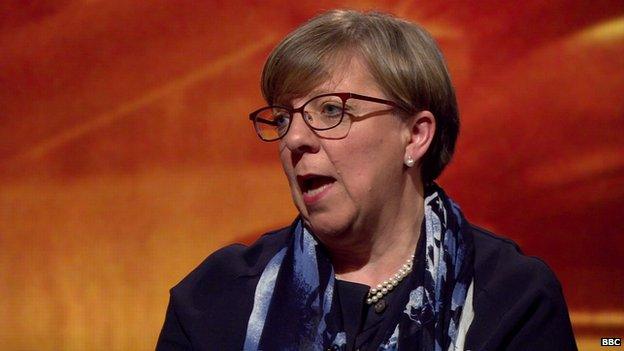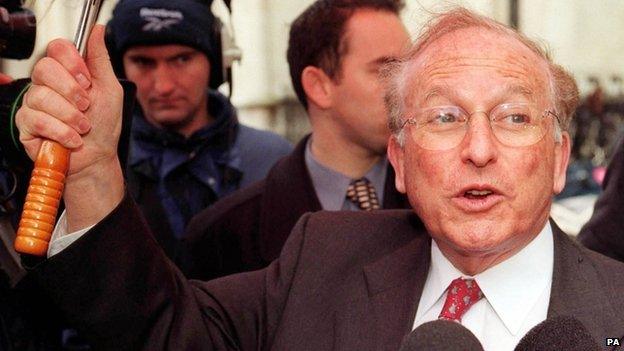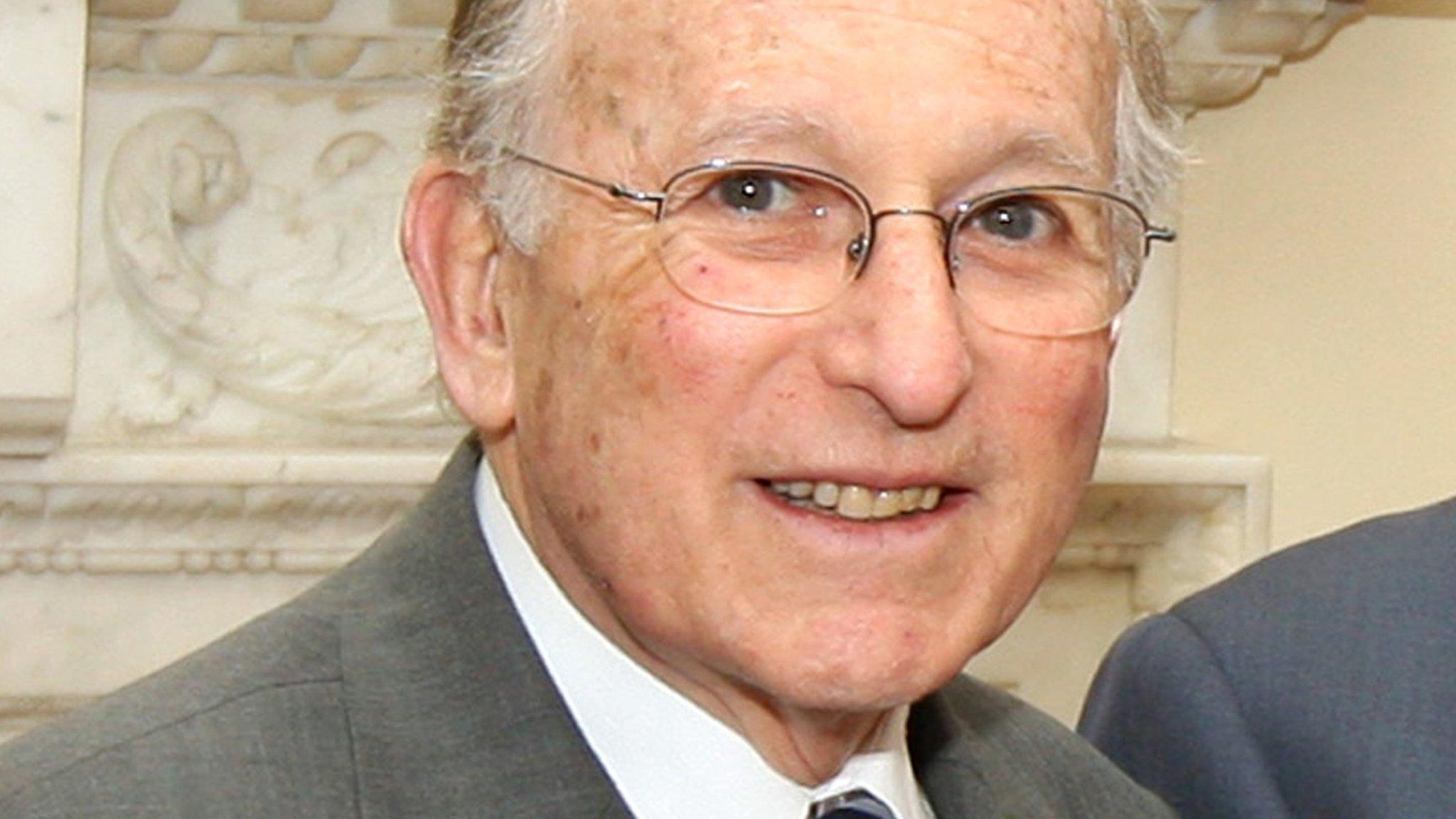Lord Janner decision right, says DPP Alison Saunders
- Published

Alison Saunders said she was aware her decision "might not be welcome"
The director of public prosecutions has said she made the "right decision" not to prosecute Lord Janner over child sex allegations.
Alison Saunders told the BBC that Lord Janner's dementia was so severe that he could "play no part in a trial".
But joining calls for a review, former chairman of the Home Affairs Committee Keith Vaz said victims must come first.
Ms Saunders said she has written to alleged victims, informing them of their right to a review.
Lord Janner's family has said that the peer "is entirely innocent of any wrongdoing".
Previously, Ms Saunders said there was enough evidence to prosecute the 86-year-old peer for 22 sex offences, but that he was now too sick to stand trial.
'No ongoing risk'
Standing by her decision, she told BBC Newsnight on Thursday: "It wasn't an easy decision to make. I'm very aware of the disappointment and frustration".
She added: "Dementia itself isn't a bar to either a trial or a trial of the facts, but you have to look at... the need to have a trial of facts for the public protection."
In Lord Janner's case, Ms Saunders said she decided there was "no ongoing risk to the public" - based on the opinions of four medical experts.
"The medical evidence was very clear in this case," she said, revealing that Lord Janner had not been interviewed by the police and had not instructed a solicitor as he "wouldn't be able to understand".

Allegations against the 86-year-old peer first surfaced in 1991
Though she said she was surprised at the political backlash over her decision, Ms Saunders said it was not her job to "duck decisions".
She said: "My decisions are independent (of the government). I make decisions in the public interest - it's entirely proper that they are scrutinised."
Linda Lee, a former president of the law society and now chairman of Voice, which supports victims and witnesses of crime in Northamptonshire, said she thought the medical evidence in the case should have been tested in court.
She told BBC Radio 4's Today programme: "I accept that her decision was within the range of decisions that could be made, but equally a decision could have been made to allow the medical records to be tested by the courts.
"And that is a critical point for me because this evidence has been looked at by Alison Saunders but not the courts and not subjected to the scrutiny the courts would have submitted it to."
She said the decision not to prosecute could be challenged under the Victims' Right to Review Scheme, but it would be difficult for victims because they would not be able to challenge the medical evidence.
She added: "This isn't disappointment for the victims. This is, I think, distress."
Mr Vaz, who backed Lord Janner during a House of Commons debate when allegations first surfaced in 1991, said he supported the comments of Leicestershire Police and Crime Commissioner Sir Clive Loader, who wants the case to be reconsidered.
Sir Clive has described the decision not to charge the Labour peer and former Leicester MP as "perverse".
Victims 'will be heard'
More than a dozen individuals have made allegations to police relating to Greville Janner.
The allegations relate to residents in children's homes in Leicestershire in the 1970s and 1980s.
Ms Saunders said she had released a very detailed statement, external explaining her decision not to prosecute Lord Janner to make sure the public understood her reasoning.
She said: "The one thing I don't want (is) to discourage people from coming forward - this was a very case-specific decision".
Ms Saunders said that she had written to the alleged victims to inform them they have the right to a review, adding that her decision could still face a judicial review.
She told Newsnight: "I knew it might not be a welcome decision...that's why I also talked to the public enquiry (into historical sexual abuse) and they have agreed that they will hear the victims...So they will be heard - they will be able to tell their story in public."
A retired High Court judge is to review the CPS's handling of the case.
- Published24 April 2015

- Published17 April 2015

- Published16 April 2015
